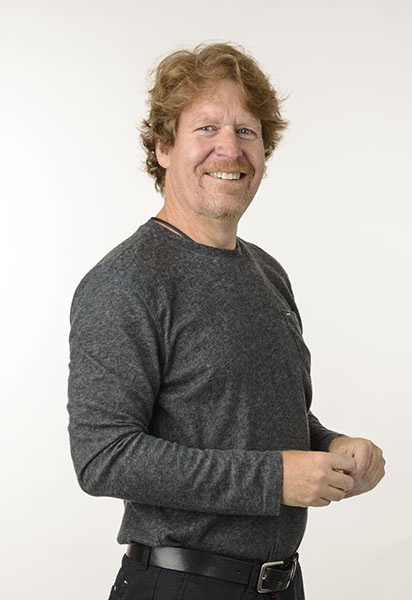
Kevin Haggerty, Professor of Sociology and Criminology
The Canada Research Chairs (CRC) program announced its new and renewed appointments today and the Faculty of Arts is well-represented.Kevin Haggerty - Killam Research Laureate and professor of sociology and criminology, has been named a Canada Research Chair in Surveillance Ecologies. Imre Szeman, a professor in English & Film Studies, will see his Tier 1 CRC in Cultural Studies renewed.
Canada Research Chairs are awarded to outstanding researchers who are acknowledged by their peers as global leaders in their fields. In awarding the CRCs, the Canadian Government seeks to attract and retain some of the world's most accomplished minds in support of cutting-edge research.
Haggerty and Szeman join seven other CRCs in the Faculty of Arts.
For more than a decade, Haggerty's research has been leading the conversation in the field of big data and surveillance and the social, political and ethical concerns this research illuminates. His work has been documented in numerous publications and research initiatives, and most recently, along with colleague Sandra Bucerius, he has begun working on a study of radicalization in Canada's prisons. In an era of polarized and often toxic affiliations, their research will provide much-needed answers to critical and globally-significant questions about radicalized populations. "There is some research going on in Europe and in the U.S., but literally none in Canada," says Haggerty, who, along with Bucerius, has been granted unprecedented access to Canada's correctional facilities.
In addition to his research, Haggerty is the editor of the Canadian Journal of Sociology and is the co-author (along with colleague Aaron Doyle) of the book 57 Ways to Screw Up in Graduate School, which draws from his long experience as a supervisor, graduate chair and one-time graduate student.
Tier 1 CRCs, such as those held by Haggerty and Szeman, are tenable for seven years and renewable.
"It's wonderful," says Szeman of his CRC renewal, who studies how energy resources - its various forms and how we use them - are shaping culture and society in the 21st century. Szeman is especially interested in understanding the cultural and societal changes that may be required to make "an unprecedented shift" from fossil fuels to renewable and sustainable forms of energy.
Szeman credits the CRC with increased research capacity and the establishment of new academic networks. Among these initiatives, Szeman singles out thePetrocultures Research Group, the After Oil research project and the Banff Research in Culture research residency, now in its seventh year. He adds that, while the CRC program has allowed for a greater focus on his research, its impact goes much deeper.
"In holding the CRC, I have been given the opportunity to train a generation of graduate students and postdoctoral fellows, to connect broader publics to research at the U of A, to work with people in all sectors of the energy industry (as in theEnergy Futures Lab) and to help shape an exciting new field of inquiry - the energy humanities." And according to Szeman, even more projects are on the horizon.
"I can't wait to get to work!"
More UAlberta CRC news here